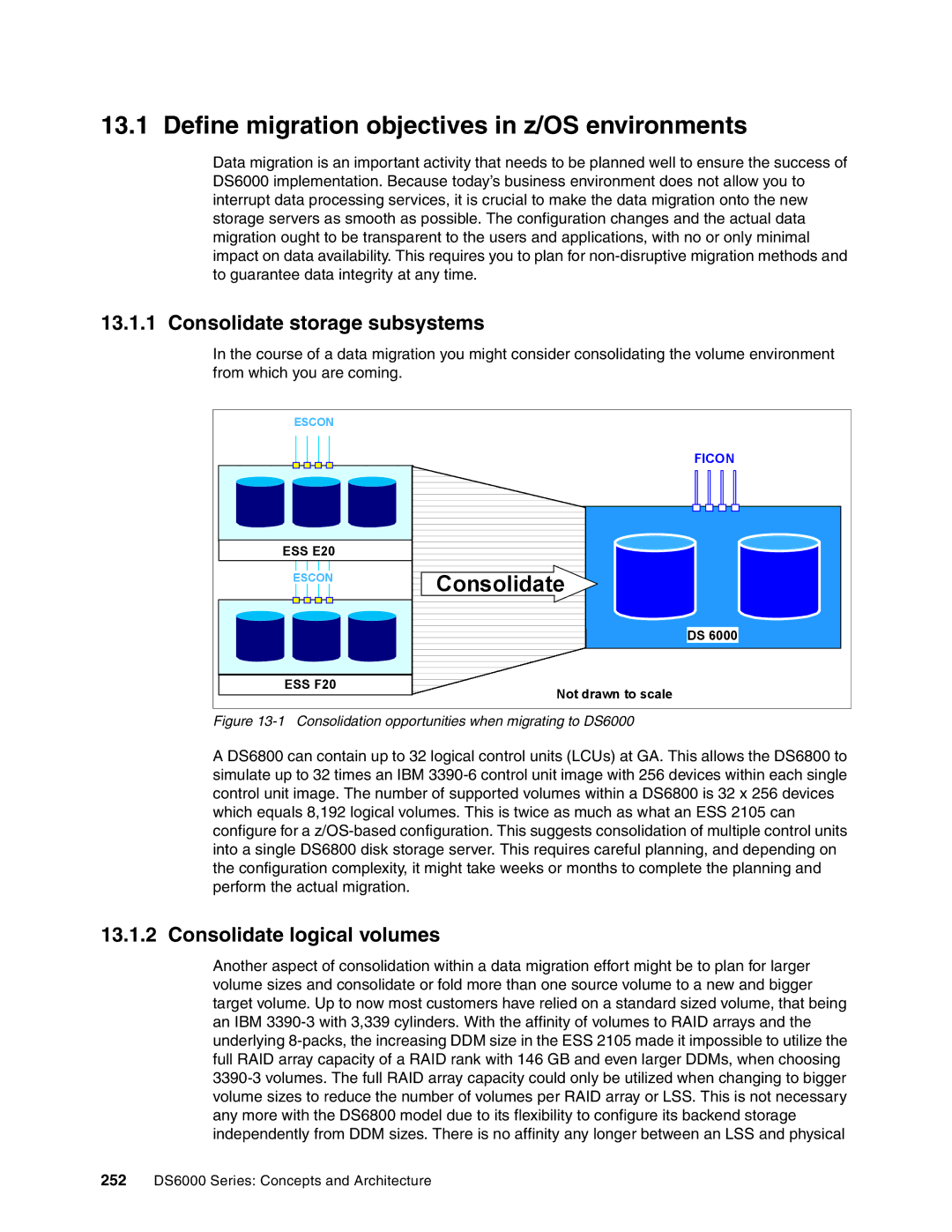
13.1 Define migration objectives in z/OS environments
Data migration is an important activity that needs to be planned well to ensure the success of DS6000 implementation. Because today’s business environment does not allow you to interrupt data processing services, it is crucial to make the data migration onto the new storage servers as smooth as possible. The configuration changes and the actual data migration ought to be transparent to the users and applications, with no or only minimal impact on data availability. This requires you to plan for
13.1.1 Consolidate storage subsystems
In the course of a data migration you might consider consolidating the volume environment from which you are coming.
ESCON |
|
| FICON |
ESS E20 |
|
ESCON | Consolidate |
| |
| DS 6000 |
ESS F20 | Not drawn to scale |
|
Figure 13-1 Consolidation opportunities when migrating to DS6000
A DS6800 can contain up to 32 logical control units (LCUs) at GA. This allows the DS6800 to simulate up to 32 times an IBM
13.1.2 Consolidate logical volumes
Another aspect of consolidation within a data migration effort might be to plan for larger volume sizes and consolidate or fold more than one source volume to a new and bigger target volume. Up to now most customers have relied on a standard sized volume, that being an IBM
252DS6000 Series: Concepts and Architecture
